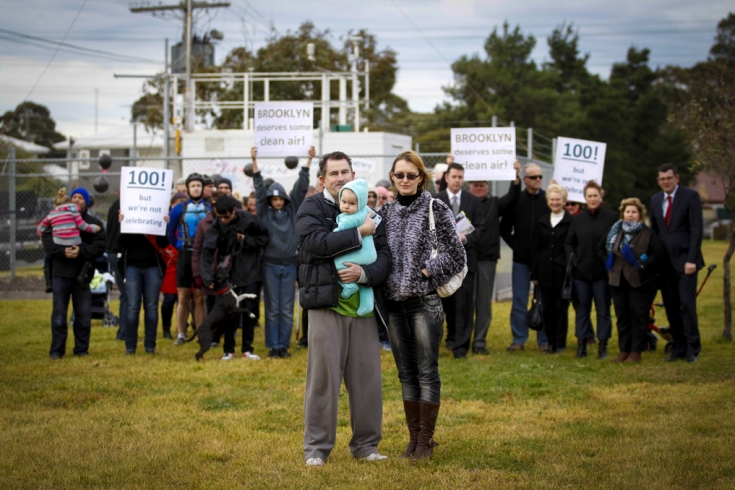Residents living near a Brooklyn industrial estate say they feel angry and betrayed after the state’s planning tribunal ruled out Brimbank council’s special charge scheme to make businesses pay to seal a dusty road.
The Victorian Civil and Administrative Tribunal sided with three Jones Road businesses that objected to paying their allocated share of $2.7 million roadworks.
Last July, Star Weekly reported that residents were moving out of Victoria’s most polluted suburb after enduring 100 days of dust levels as high as those experienced during the 2009 Black Saturday bushfires.
The World Health Organisation warns people should not be exposed to such high levels of particle pollution more than five days a year.
Following our report, the state government committed $900,000 towards the $2.7 million cost of paving Jones and Bunting roads.
The VCAT ruling states “the irony is that the council could perhaps have applied part of this ($900,000 state government) grant to the Jones Road special charge scheme as an assessed public contribution to community benefit”.
“Had it even belatedly recognised community benefits in this way, rather than maintaining its stance that the community benefits should still be assessed at ‘zero’ for this scheme, it may have avoided the consequence in this proceeding.”
Brimbank council director Paul Younis said VCAT’s decision was based on the possibility that construction of stage two of the East West Link could impact on the scheme.
He indicated the council was unlikely to fight a similar VCAT appeal in September to determine the validity of a special charge scheme for Bunting Road.
“Given this outcome, council needs to reassess whether to go ahead with the Bunting Road special charge scheme through VCAT,” Mr Younis said.
Brooklyn Residents Action Group president Bert Boere said that, in the meantime, residents continued to suffer. “The dust levels will continue to affect the lung and heart health of our young, sick and elderly and they will continue to face a reduction in life span as a potential consequence,” he said.

















